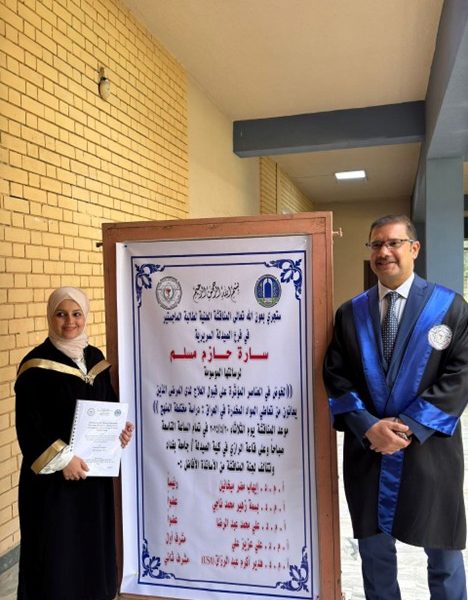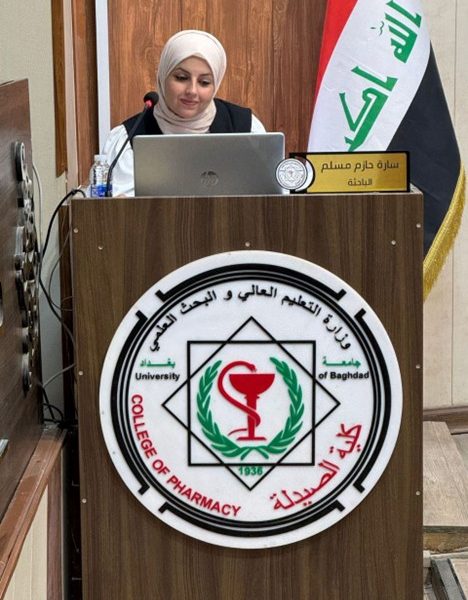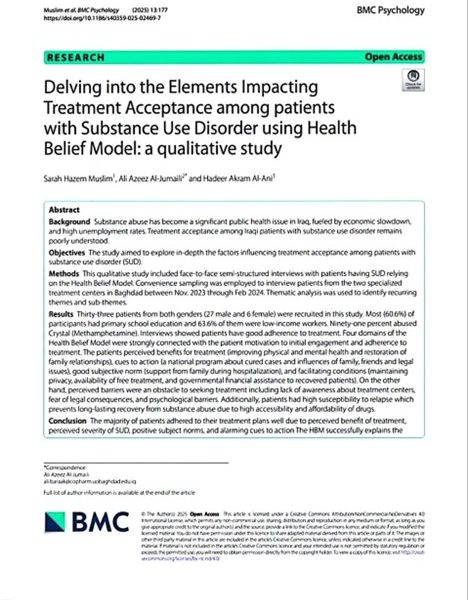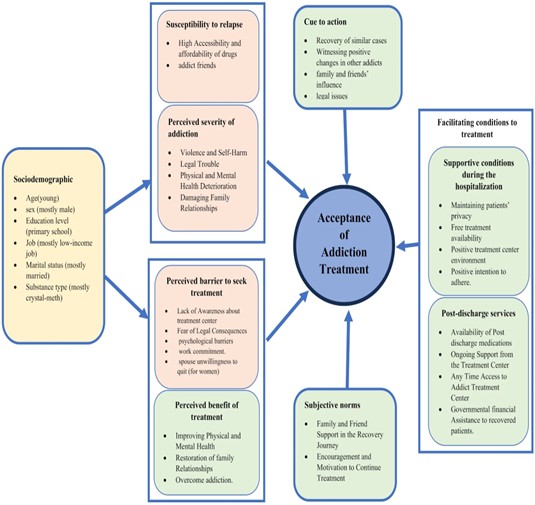The College of Pharmacy discussed the MSc thesis entitled “Delving into the Elements Impacting Treatment Acceptance among patients with substance Abuse in Iraq: A Mixed Method Study” by the student Sarah Hazem Muslim and her supervisors, Assistant Professor Dr. Ali Azeez Ali from the Clinical Pharmacy Department, and Assistant Professor Dr. Hadeer Akram Al-Ani from School of Medicine, Davis/University of California, USA.
This study aimed to assess the factors influencing treatment acceptance among patients with substance use disorder (SUD), from both patients’ perspectives and healthcare providers’ perspectives (Psychiatrist and Nurses). It employed a mixed-methods approach, combining qualitative and quantitative data collection and analysis techniques, and utilized two theoretical frameworks:
- The Health Belief Model (HBM) to understand psychological and social factors from the patients’ point of view.
- The SEIPS Model (Systems Engineering Initiative for Patient Safety) to analyze organizational factors from the perspective of healthcare providers.
The study involved collecting qualitative data through face-to-face semi-structured interviews with 33 patients and 28 healthcare providers at Al-Qanat Center for Social Rehabilitation and Al-Ataa Hospital for Addiction Treatment and Psychological Rehabilitation in Baghdad. In addition, medical records and follow-up data from 470 patients were reviewed, covering a full year following hospital admission, to analyze variables associated with treatment outcomes.
The results revealed that four domains of the HBM were strongly connected with the patient’s motivation to initial engagement and adherence to treatment. The patients perceived benefits for treatment (improving physical and mental health and restoration of family relationships), cues to action (a national program about cured cases and influences of family, friends and legal issues), good subjective norm (family support), and facilitating conditions (maintaining privacy, availability of free treatment, and governmental financial assistance to recovered patients). On the other hand, perceived barriers were an obstacle to seeking treatment including lack of awareness about treatment centers, fear of legal consequences, and psychological barriers. Additionally, patients had a high susceptibility to relapse due to the high accessibility and affordability of drugs. providing specialized staff and ongoing training, psychological counseling, a comfortable therapeutic and recreational environment, and improving resources and policies to ensure regular follow-up after hospitalization are organizational factors that help patients accept treatment. From the quantitative perspective, analyses revealed that younger age, shorter duration of addiction, and a higher number of post-discharge follow-up visits were significantly associated with greater treatment completion rates. A statistically significant relationship was also found between the number of follow-up visits and long-term abstinence from substance use. The study recommended the importance of establishing new treatment centers, training medical staff, and enhancing post-discharge follow-up to increase the likelihood of successful recovery. It also highlighted the need to raise public awareness about addiction and reduce the social stigma associated with it.







